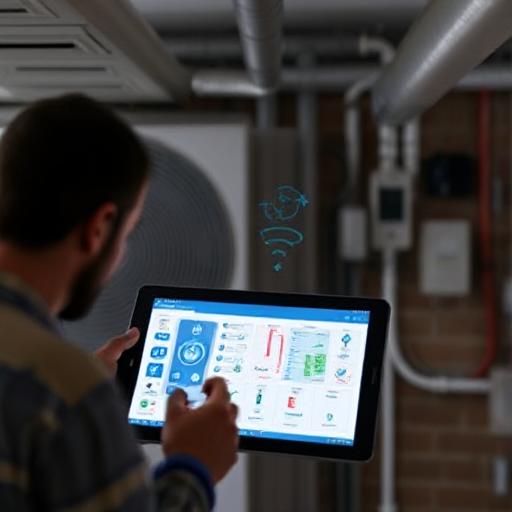The Future of HVAC: Embracing Remote-Controlled Maintenance Systems
Welcome to the era where HVAC maintenance is not just smart, but incredibly efficient! If you’re still relying on traditional systems, let me show you why it’s time to consider remote-controlled HVAC maintenance. In this blog, we’ll explore how these systems can help you cut costs, extend equipment lifespan, and contribute to sustainability goals—all while keeping your facilities running smoothly.
The Cost-Saving Benefits of Remote HVAC Monitoring
Did you know that remote-controlled HVAC systems can significantly reduce your energy costs and overall operating expenses? With predictive maintenance, you can save approximately 8%-12% over preventive approaches and up to 40% over reactive maintenance. By enabling real-time monitoring and immediate alerts on performance anomalies, these systems help you avoid costly emergency repairs and unplanned downtime.
Prolonging Equipment Lifespan with Smart Technology
One of the standout advantages of smart HVAC systems is their ability to detect issues before they become serious problems. Thanks to sensors and advanced analytics, you’re able to schedule maintenance based on real needs instead of fixed intervals. This proactive approach ensures that your equipment doesn’t suffer from excessive wear, which can lead to premature replacements.
Remote Access and Management: A Game Changer
Imagine adjusting your facility’s HVAC settings from anywhere in the world! With smart thermostats like the Ruud Econet 800 Series, available from Mar-Hy Distributors, you can do just that. Remote access allows you to manage multiple sites efficiently, reducing utility bills, service calls, and operational disruptions.
Bullet Points: Key Takeaways
- Remote HVAC monitoring benefits include significant cost savings and reduced maintenance needs.
- Smart HVAC systems enable predictive maintenance, improving equipment lifespan.
- Energy savings with remote HVAC contribute to sustainability by lowering carbon emissions.
- Real-time HVAC issue detection helps maintain regulatory compliance.
- Remote HVAC performance optimization ensures smooth operations across facilities.
Conclusion
Remote-controlled HVAC maintenance systems are not just a trend; they’re a necessity for modern facility management. By embracing this technology, you’re setting yourself up for long-term savings, improved equipment reliability, and a smaller carbon footprint. Don’t get left behind—explore your options today!
Your Next Step: Contact an HVAC specialist to find out how remote-controlled systems can benefit your facilities.
FAQ: Your Questions Answered
What are the remote HVAC monitoring benefits?
Remote HVAC monitoring helps reduce emergency repairs, cuts down on energy costs, and improves overall system efficiency.
How do remote-controlled HVAC maintenance systems work?
These systems use sensors and analytics to monitor performance, allowing for real-time adjustments and predictive maintenance.
What are the advantages of smart HVAC systems?
Smart HVAC systems offer cost savings, improved energy efficiency, and enhanced equipment lifespan through advanced monitoring and control.
Can remote HVAC systems help with sustainability goals?
Absolutely! By optimizing energy use, these systems lower carbon emissions and reduce energy waste.
How does remote HVAC system management improve compliance?
Real-time data visibility ensures that your facilities meet regulatory standards for air quality and operational efficiency.


